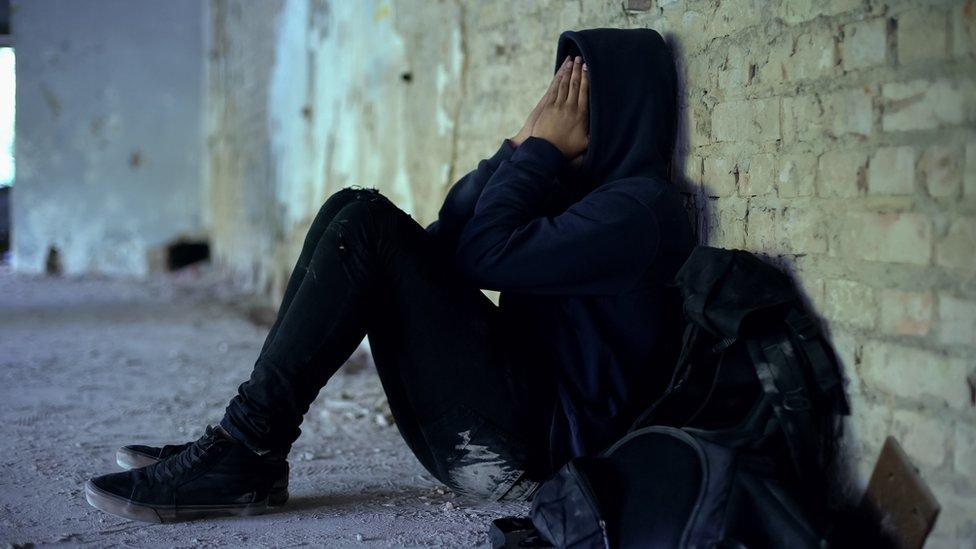LGBT asylum seekers: Call for dedicated housing in Wales
- Published
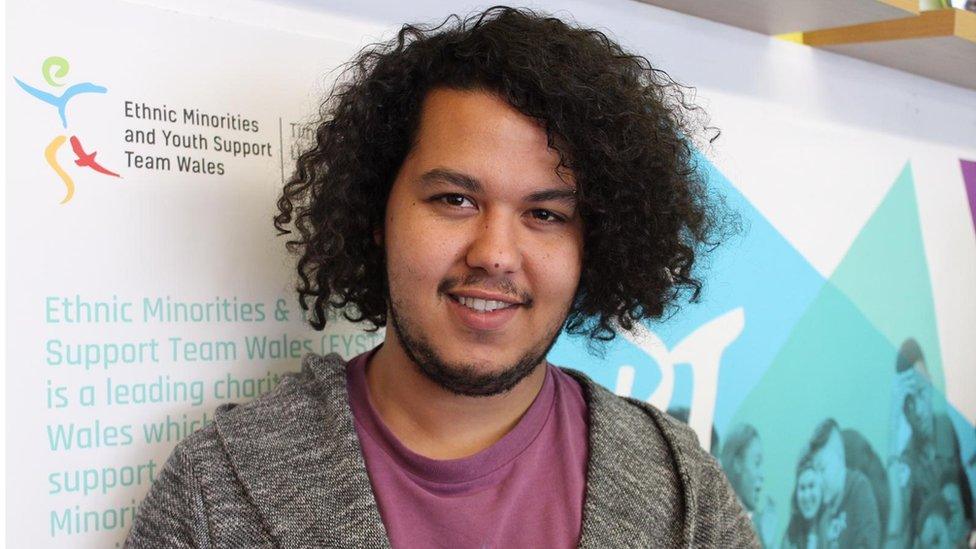
Abderrahim El Habachi fled Morocco in 2017
A Moroccan man seeking asylum in the UK over alleged mistreatment due to his sexuality has said he faced homophobic abuse while housed in Wales.
Abderrahim El Habachi, 28, said he felt "unsafe" living alongside some men from North Africa and the Middle East after he arrived in Cardiff in 2017.
He called for dedicated LGBT housing.
The Home Office said it required accommodation providers to "take account of any circumstances and vulnerability".
Mr El Habachi's application for asylum in the UK and a subsequent appeal have been rejected and a new application is pending.
He said being gay in Morocco was difficult, he felt his life was in danger there, and he was constantly playing a game of "hide and seek" with the police.
"'Who's the man and who's the woman? What's your girl name?' - I heard this daily from the Moroccan police," said Mr El Habachi.
In 2017, he decided to flee Morocco for the UK and ended up in Cardiff, housed with men from a similar culture who he said had the homophobic and transphobic views he had tried to escape.
"I had fled a country that was dangerous for me, because of who I am, and I was put in an environment that felt more dangerous than the situation that I left," he said.
He was initially housed in accommodation provided by the National Asylum Support Service.
"I only spent 50 days there, but it felt like a lifetime," he said, explaining that being placed alongside some men from North Africa and the Middle East with homophobic views created "instability" for him. Mr El Habachi said when he asked about living accommodation for LGBT-asylum seekers and refugees, he was told none existed.
"I felt so unsafe and vulnerable, I thought I would come here and be able to embrace myself but instead I was feeling very insecure.
"It was as though there was no effort to make LGBT people welcome, the drop-in centres for asylum seekers and refugees weren't LGBT friendly, they were mainly aimed towards cis men. I was made to feel unwelcome," he said.
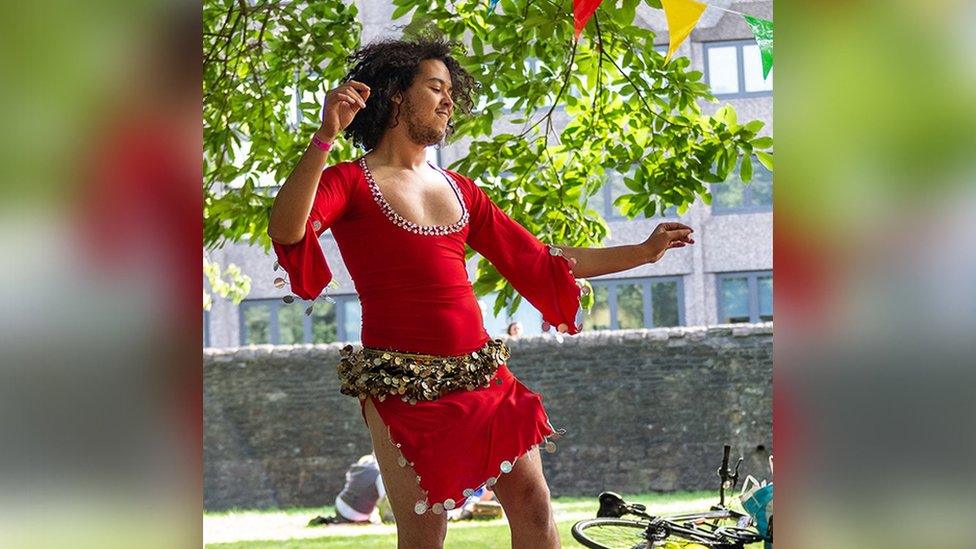
Mr El Habachi was told Morocco was a safe country for LGBT people
Mr El Habachi said his interview with the Home Office in relation to his application to remain in the UK was traumatic with lots of "intrusive" questions about his sexuality.
"This added so much more pressure to the interview. Was I saying the right thing? Was I giving enough detail? From a life in Morocco, where I was pretending to not be gay in order to avoid any issues, I was now having to openly talk about my homosexuality in great detail, something I wasn't comfortable with," Mr El Habachi said.
His application was rejected, with Mr El Habachi told Morocco was a safe country for the LGBT community - a conclusion he found unbelievable.
"I have been persecuted as a gay man in the country, so for them to say I can go back and live openly as a gay man is ridiculous," he said.
His subsequent appeal against the decision was also rejected.
Homosexuality is illegal in Morocco and victims of abuse and harassment can expect no support from police or the government, human rights groups have said.
Official figures show there were 1,212 asylum applications lodged in the UK in 2019 where sexual orientation formed part of the basis for the claim.
Over the past three years, the refusal rate for sexuality-based asylum claims increased from 61% to 71%, according to Home Office figures.
Mr El Habachi said he was ready to give up but, with the support from the LGBT community in Wales, he decided to make a new application, which is pending.
He said his time as an asylum seeker might be "shrinking" and he hoped he would get refugee status but he feared the "nightmares I have of living in persecution, having to hide who I am will become a reality".
Charity Stonewall Cymru said many lesbian, gay, bisexual and transgender people were forced to flee their countries because they experienced "violence and rejection by their family and society".
"They come to the UK looking for safety and to lead a life where they are free to be themselves. Sadly, the harrowing experience of this individual shows that the UK has a long way to go before LGBT+ people seeking asylum get the support and protection they deserve," a spokesperson said.
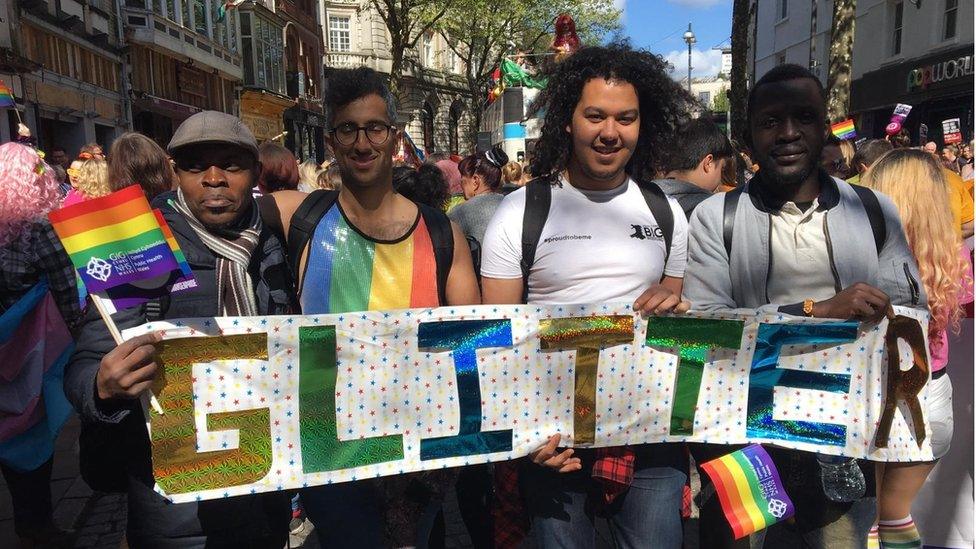
Abderrahim El Habachi arrived in Cardiff after fleeing Morocco in 2017
The Welsh Refugee Council added: "We know that those seeking sanctuary who identify as LGBTQI+ face specific challenges when claiming asylum. We continue to press for safe, secure accommodation for all those seeking asylum in Wales."
The Home Office said the UK had a "proud record" of providing protection for asylum seekers fleeing persecution.
A spokesman said: "We provide LGBT+ asylum seekers with details for a range of organisations which can provide support from the point of their claim. We also require our accommodation providers to take account of any circumstances and vulnerability, with two of them offering designated accommodation for LGBT+ asylum seekers.
"Every asylum claim is considered carefully, sensitively and on its individual merits by caseworkers who receive extensive training."
- Published11 October 2020
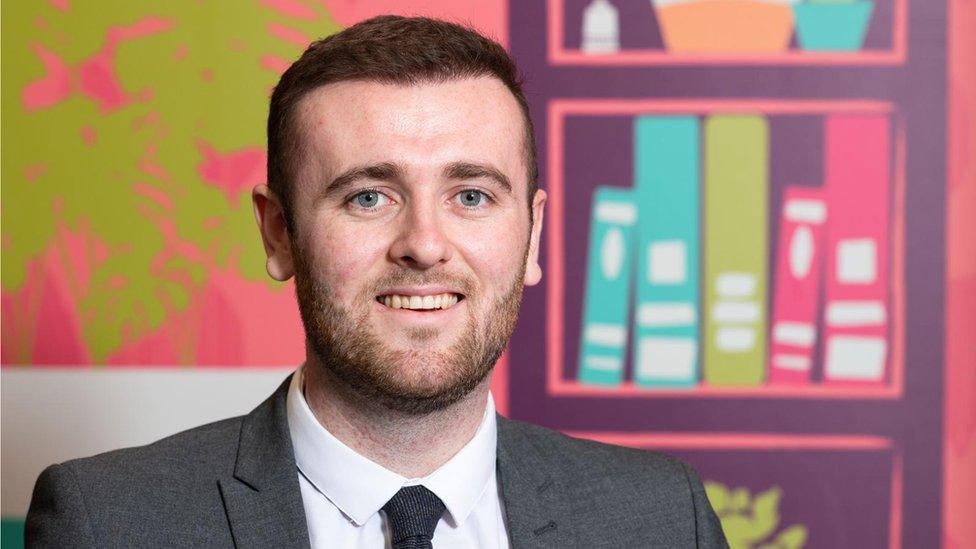
- Published25 August 2020
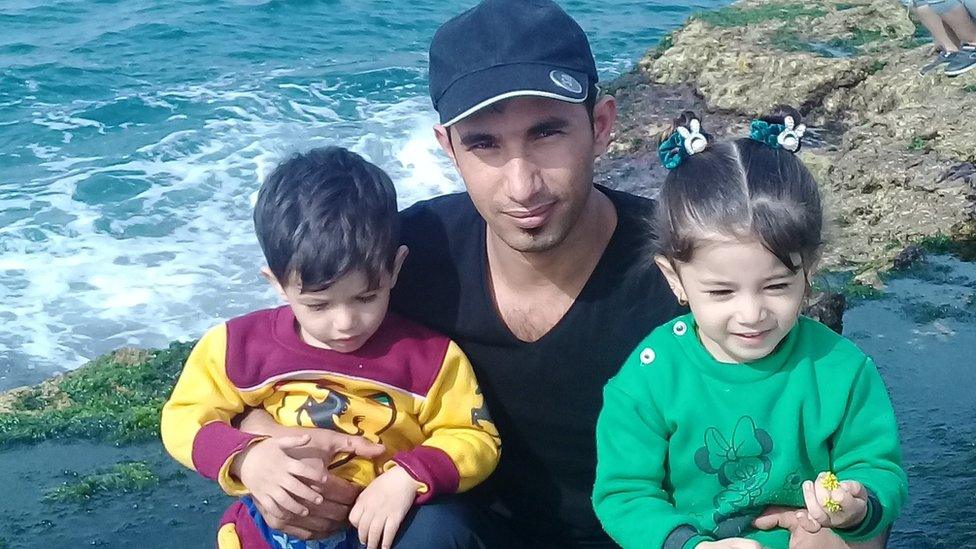
- Published15 April 2020
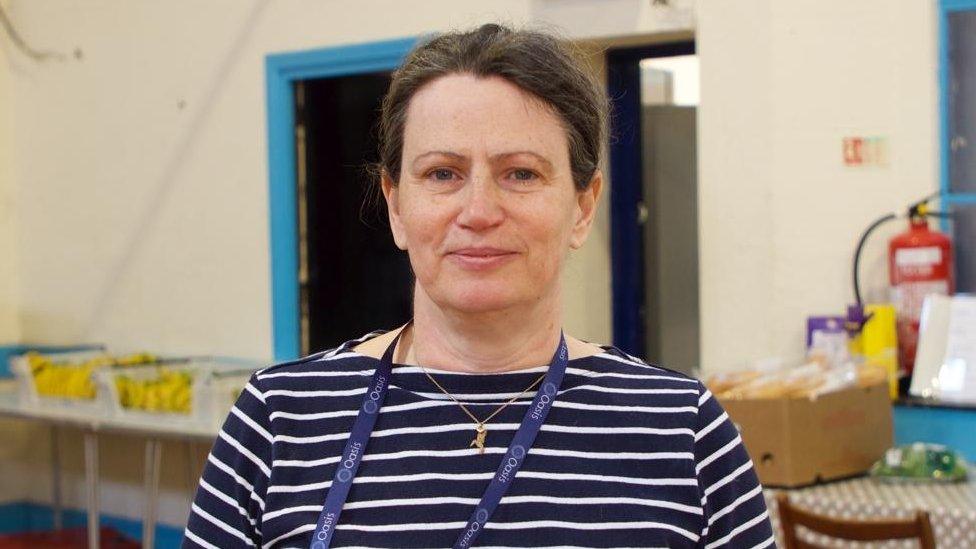
- Published1 March 2020
